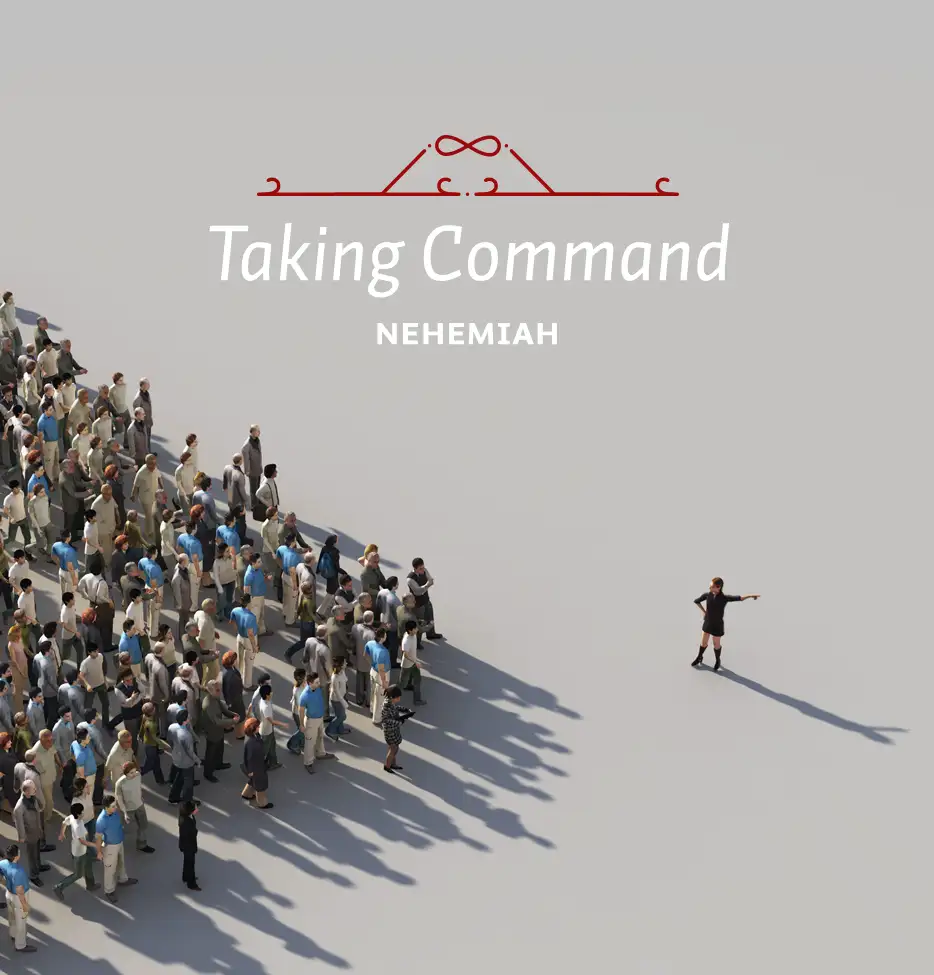One of the complaints raised against the Bible is that it is impractical, that it is too “spiritual” to be of real use. The opinion is usually voiced by those who do not know the Bible well, though in fairness to their view it is right to acknowledge that the Bible does have spiritual goals. Even Nehemiah, which is extremely practical, has doctrinal themes. But even these “spiritual” matters are presented practically, and, as I have been pointing out, there is outstanding teaching about the very practical matter of leadership.
We have studied two of the dynamics of leadership: the relationship of the leader to God, and the relationship of the leader to his superior or superiors. In this study we will look at the relationship of the leader to his subordinates seen in Nehemiah’s account of his arrival in Jerusalem and the manner in which he took command.
In one sense Nehemiah is the story of a great man meeting and overcoming challenges. We have already seen how he met the challenge of persuading King Artaxerxes to send him to Jerusalem. But now he faced a second problem which was no less difficult.
What was the problem? The problem was to get the wall of Jerusalem built. What were the difficulties? The difficulties were these.
1. The task was overwhelming. Commentators differ over the size of the city at this time and therefore over the length of wall Nehemiah was to build. But even by the most modest estimates the circumference of the city was one and a half to two and one half miles.1 Moreover, the destruction was great and the stones to be reassembled were massive. The blocks that had been tumbled down into the valleys below were of great weight, and these had to be exposed and then hauled back up to the site of the wall and reassembled. This required many workers, diverse skills and even, we may suppose, a certain amount of lifting and moving machinery.
2. A history of defeat. Nehemiah faced a second great difficulty. Not only was the task itself overwhelming. It had been attempted before and had been given up.
Nehemiah arrived in Jerusalem in the twentieth year of King Artaxerxes, which was 445 B.C. But the work had actually begun more than ninety years earlier. At that time the first contingent of Jews tried to rebuild the temple, but even that lesser task had proved difficult. It took fifteen years to get the temple finished. Then, when the first attempt to re-erect the walls was made, opposition arose. When Nehemiah arrived the most recent failure was only thirteen years in the past. So Nehemiah faced not only a difficult task but inertia.
3. A discouraged group of workers. To make matters worse, the only people Nehemiah had to work with were discouraged, as we also would have been in that situation.
An overwhelming task? Yes. But overwhelming tasks are opportunities for great men, which Nehemiah was. In chapter 2:11-18, turning from his superior to his subordinates, we see how he went about changing the situation so that within the next fifty-two days (less than two months) this great task was accomplished. As in the case of his dealing with King Artaxerxes, when he was in a position of middle management, we see six elements to his success.
1Kathleen M. Kenyon, Jerusalem: Excavating 3000 Years of History (New York: McGraw Hill, 1967), 100. See Howard F. Vos, Bible Study Commentary: Ezra, Nehemiah, and Esther (Grand Rapids, MI: Zondervan Publishing House, 1987), 113.






